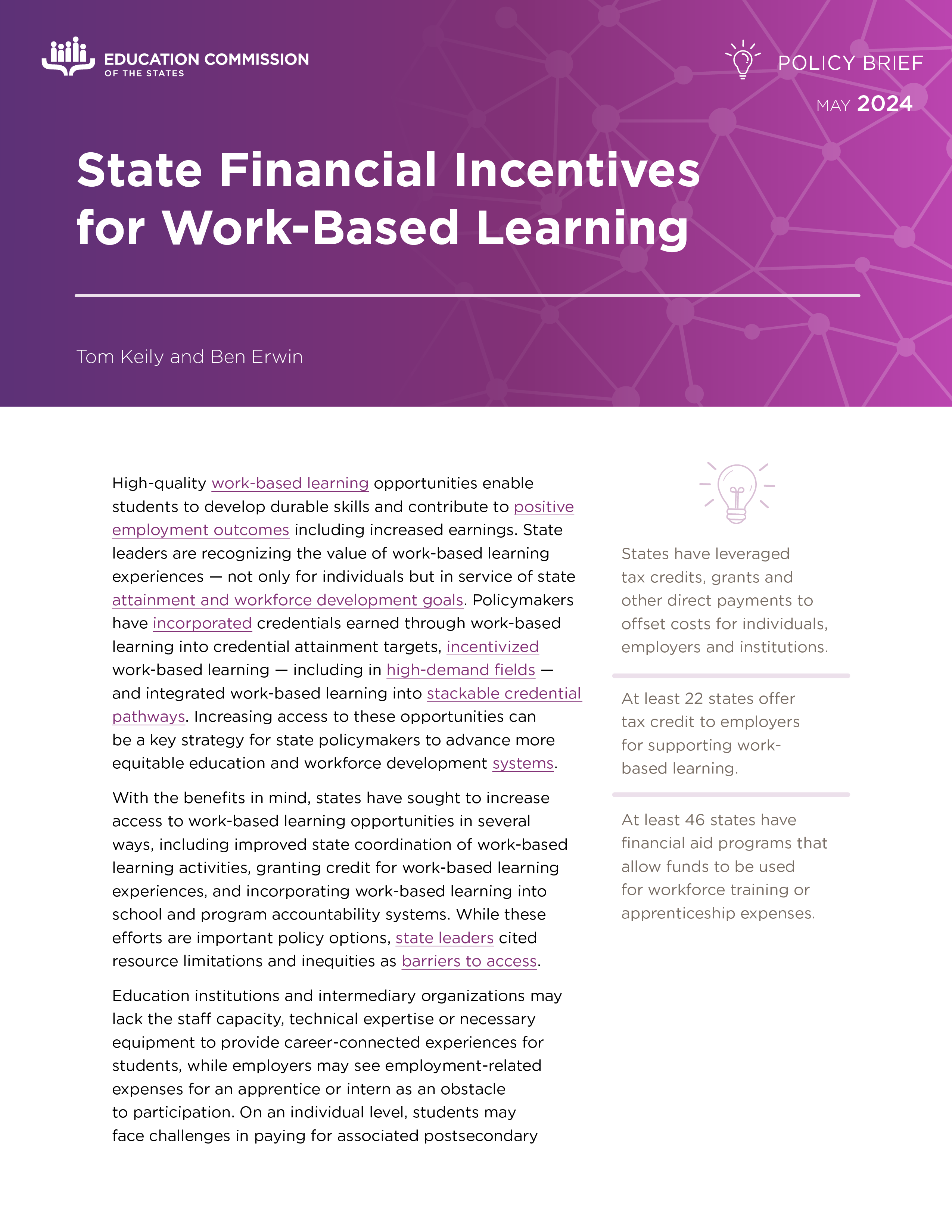High-quality work-based learning opportunities enable students to develop necessary skills and contribute to positive employment outcomes. State leaders are recognizing the value of work-based learning experiences — not only for individuals but in service of state attainment and workforce development goals.
As leaders recognize the value, financial incentives can help offset costs associated with offering, engaging in and supporting work-based learning and serve as one tool to address barriers to access and expansion of work-based learning.
Informed by a 50-state policy scan, this Policy Brief highlights key elements of financial incentives in state policy for each group: students, employers, and education institutions and intermediaries. Each section is informed by a 50-state policy scan and state examples are included throughout.
Interested in learning more?
Check out this 50-State Comparison on work-based learning policies and this Policy Brief on expanding quality CTE and work-based learning.



